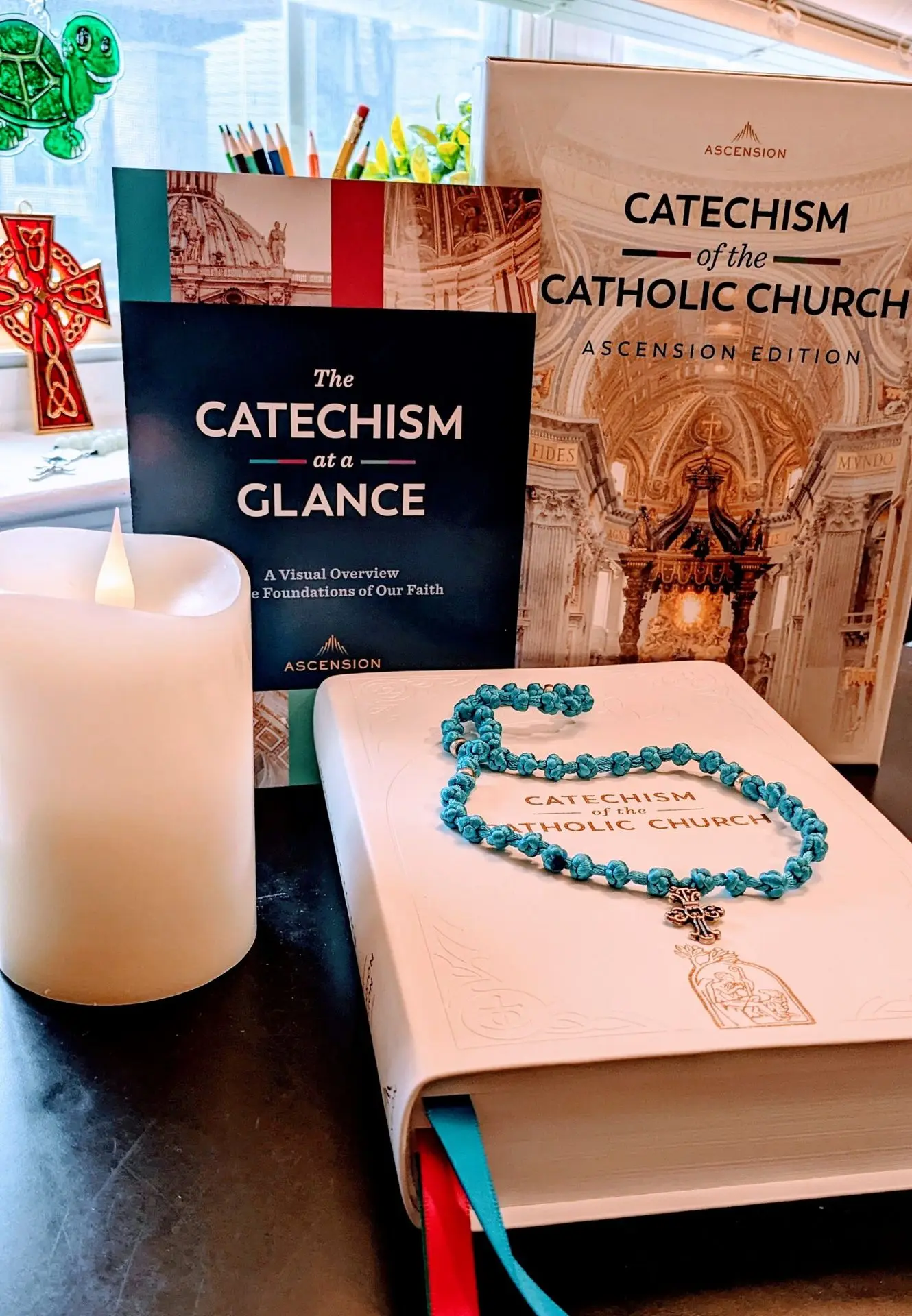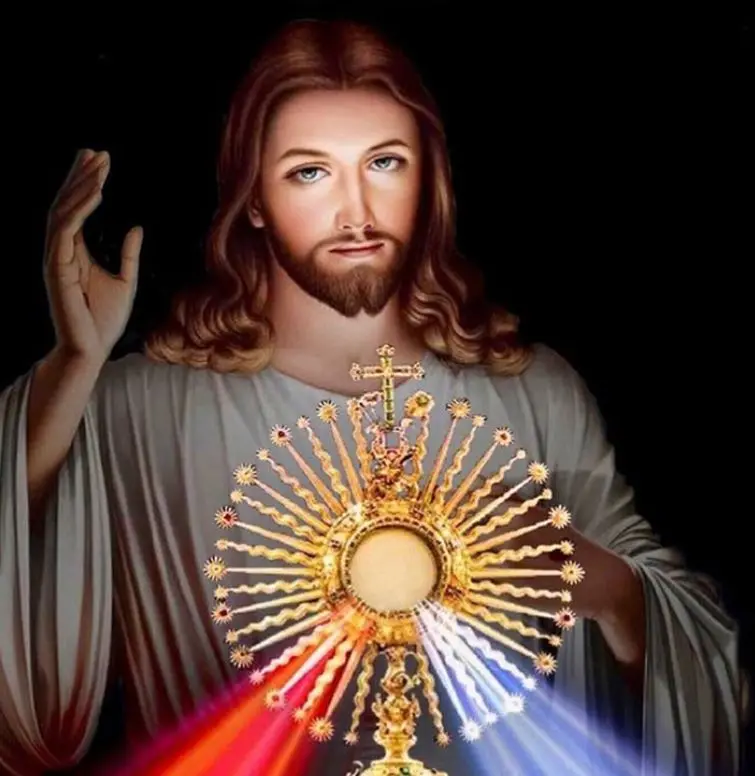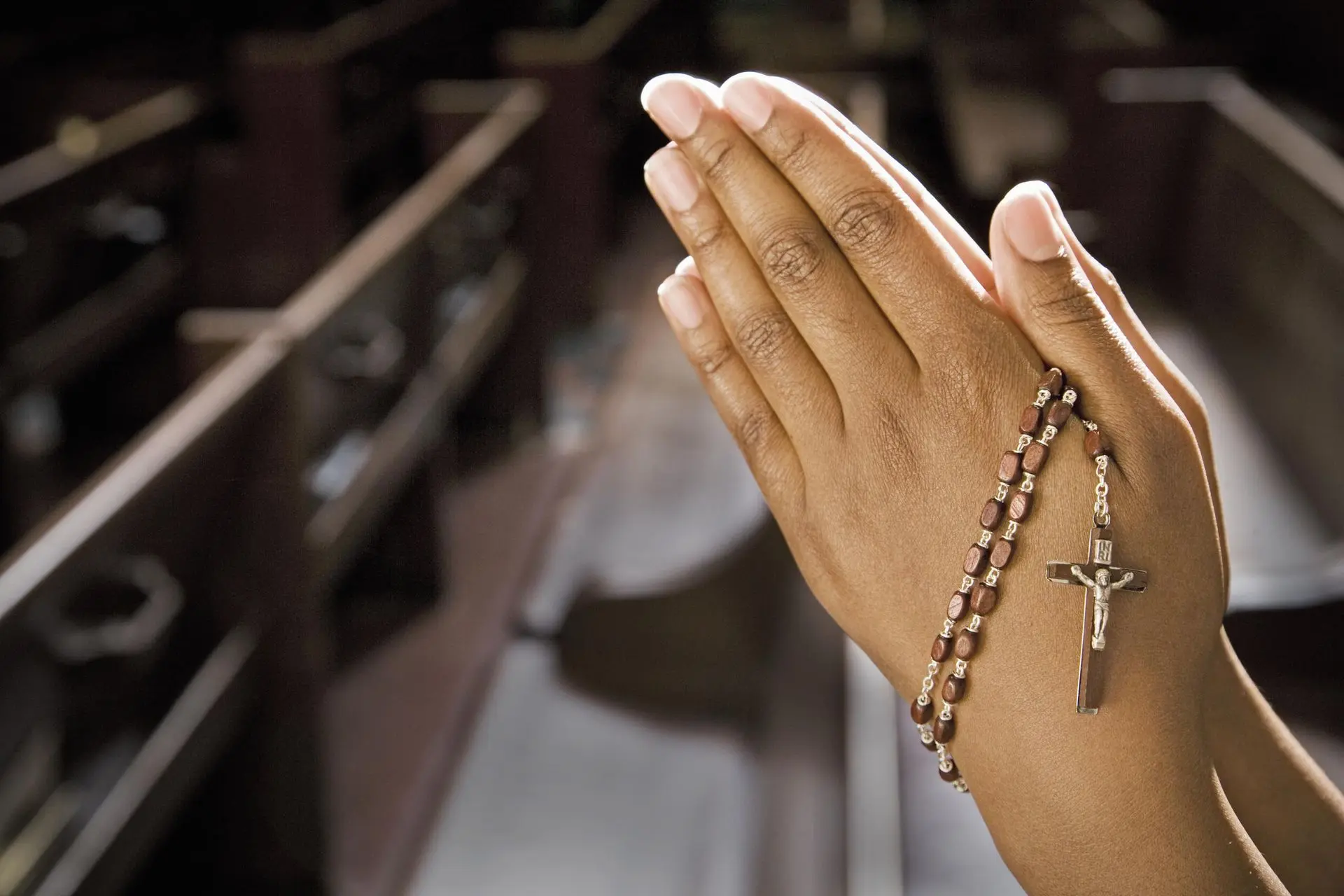Catechism
Four principal parts:
- The profession of faith (the Apostle’s Creed)
It was into that faith of the Apostles that Christians were and are baptized. It’s therefore a summary of what the church teaches, and of what Christians together believe, rather than a detailed statement of individual and personal belief. I believe in:
1. God the Father Almighty, Creator of Heaven and Earth;
2. And in Jesus Christ, His only Son, our Lord and Savior;
3. He was conceived by the power of the Holy Spirit, and was Born of the Blessed Virgin Mary;
4. Jesus Christ Suffered under Pontius Pilate, was Crucified, Died and was Buried;
5. He descended to the Dead. On the Third day He Rose again;
6. He Ascended into Heaven and is Seated at the Right Hand of the Father;
7. From thence He will come again to Judge the living and the dead.
8. I Believe in the Holy Spirit.
9. I believe in the Holy Catholic Church.
10. I believe in the Forgiveness of Sins.
11. I believe in the Resurrection of the Body.
12. I believe in Life Everlasting.
b) The celebration of the Christian Mystery (the Sacred Liturgy, and especially the Sacraments)
Baptism (gateway to other sacraments) - indelible mark, exhaust, child of God, Confirmation, the Eucharist, Penance (D.O.T. direct observation treatment), the Anointing of the sick, Holy Orders and Matrimony.
The sacraments are “efficacious signs of grace, instituted by Christ and entrusted to the Church, by which divine life is dispensed to us” (CCC 1131). In other words, a sacrament is a sacred and visible sign that is instituted by Jesus to give us grace, an undeserved gift from God.
A sacrament is a religious ceremony or rite. Sacraments are important holy events to members of that religion.
Sacramental matter (weight and occupies space) and form:
The matter of a sacrament is "that part of a sacrament with which or to which something is done in order to confer grace", "materials used and actions performed". The form of a sacrament consists of the words and the intention by which the sacrament is effected.
c) Life in Christ (including the Ten Commandments):
1. I AM THE LORD THY GOD: THOU SHALT NOT HAVE STRANGE GODS BEFORE ME. COMMANDS: faith, hope, love, and worship of God; reverence for holy things; prayer. FORBIDS: idolatry; superstition; spiritism; tempting God; sacrilege; attendance at false worship.
2. THOU SHALL NOT TAKE THE NAME OF THE LORD THY GOD IN VAIN. COMMANDS: reverence in speaking about God and holy things; the keeping of oaths and vows. FORBIDS: blasphemy; the irreverent use of God's name; speaking disrespectfully of holy things; false oaths and the breaking of vows.
3. KEEP THE SABBATH HOLY. COMMANDS: going to church on Sundays and holy days of obligation. FORBIDS: missing church through one's own fault; unnecessary servile work on Sunday and holy days of obligation.
4. HONOUR THY FATHER AND THY MOTHER. COMMANDS: love; respect; obedience on the part of children; care on the part of parents for the spiritual and temporal welfare of their children; obedience to civil and religious superiors. FORBIDS: hatred of parents and superiors; disrespect; disobedience.
5. THOU SHALT NOT KILL. COMMANDS: safeguarding of one's own life and bodily welfare and that of others. FORBIDS: unjust killing; suicide; abortion; sterilization; dueling; endangering life and limb of self or others.
6. THOU SHALT NOT COMMIT ADULTERY. COMMANDS: chastity in word and deed. FORBIDS: obscene speech; impure actions alone or with others.
7. THOU SHALT NOT STEAL. COMMANDS: respect for the property of rights and others; the paying of just debts; paying just wages to employees; integrity in public office. FORBIDS: theft; damage to the property of others; not paying just debts; not returning found or borrowed articles; giving unjust measure or weight in selling; not paying just wages; bribery; graft; cheating; fraud; accepting stolen property; not giving an honest day's work for wages received; breach of contract.
8. THOU SHALT NOT BEAR FALSE WITNESS AGAINST THY NEIGHBOR. COMMANDS: truthfulness; respect for the good name of others; the observance of secrecy when required. FORBIDS: lying; injury to the good name of others; slander; talebearing; rash judgment; contemptuous speech and the violation of secrecy.
9. THOU SHALT NOT COVET THY NEIGHBOR'S WIFE. COMMANDS: purity in thought. FORBIDS: wilful impure thought and desires.
10. THOU SHALT NOT COVET THY NEIGHBOR'S GOODS. COMMANDS: respect for the rights of others. FORBIDS: the desire to take, to keep, or damage the property of others
d) Christian Prayer (including the Lord’s Prayer)
The seven petitions of the Lord's Prayer are:
1. Hallowed be thy name: God’s Name held holy.
2. Thy kingdom come: asks for God's kingdom in everyday life and at the end of time.
3. Thy will be done: directed to God for his own sake.
4. Give us this day our daily bread: The divine provision.
5. Forgive us our trespasses: care.
6. Lead us not into temptation: asks God to help you make the right decisions instead of giving into temptation
7. Deliver us from evil: The occasions of sin; place, time, thing, company, conscience
9. THOU SHALT NOT COVET THY NEIGHBOR'S WIFE. COMMANDS: purity in thought. FORBIDS: wilful impure thought and desires.
10. THOU SHALT NOT COVET THY NEIGHBOR'S GOODS. COMMANDS: respect for the rights of others. FORBIDS: the desire to take, to keep, or damage the property of others
Sacraments
The Seven Sacraments
The Catholic faith is rich with tradition and practices that guide believers in their spiritual journey. At the heart of this faith are the Seven Sacraments, considered sacred rites instituted by Christ to give grace. These sacraments are grouped into three categories: Sacraments of Initiation, Sacraments of Healing, and Sacraments of Service. Here's a brief overview of each:
Sacraments of Initiation
These sacraments lay the foundation for a Christian life and help believers enter and grow in the faith.
- Baptism
The first sacrament of initiation and the gateway to all others.
It cleanses the individual of original sin and welcomes them into the Church as a child of God.
Symbols: Water (cleansing and renewal), Chrism oil, and a white garment (purity).
- Confirmation
Strengthens the grace of Baptism and confirms the individual's commitment to their faith.
Involves the laying on of hands and anointing with Chrism oil by a bishop.
Represents the sealing of the Holy Spirit.
- Eucharist (Holy Communion)
The source and summit of the Christian life, where believers receive the Body and Blood of Christ.
It commemorates the Last Supper and fosters a deep union with Jesus.
Sacraments of Healing
These sacraments offer spiritual and physical healing, helping believers reconcile with God and their community.
- Reconciliation (Penance or Confession)
Provides forgiveness of sins committed after Baptism.
Through confession, repentance, and absolution, believers are reconciled with God and the Church.
- Anointing of the Sick
Offers comfort and spiritual strength to those who are seriously ill or near death.
Includes prayers, the laying on of hands, and anointing with oil.
Sacraments of Service
These sacraments prepare individuals for a particular mission or vocation in life.
- Holy Orders
The sacrament through which men are ordained as deacons, priests, or bishops to serve the Church.
Includes the laying on of hands and a prayer of consecration.
- Matrimony (Marriage)
Unites a man and woman in a lifelong covenant of love and service.
Reflects the union between Christ and the Church.
These sacraments are profound encounters with God, helping Catholics grow in holiness and live out their faith. Each sacrament is a reminder of God’s presence in every stage of life, from birth to eternal life.



